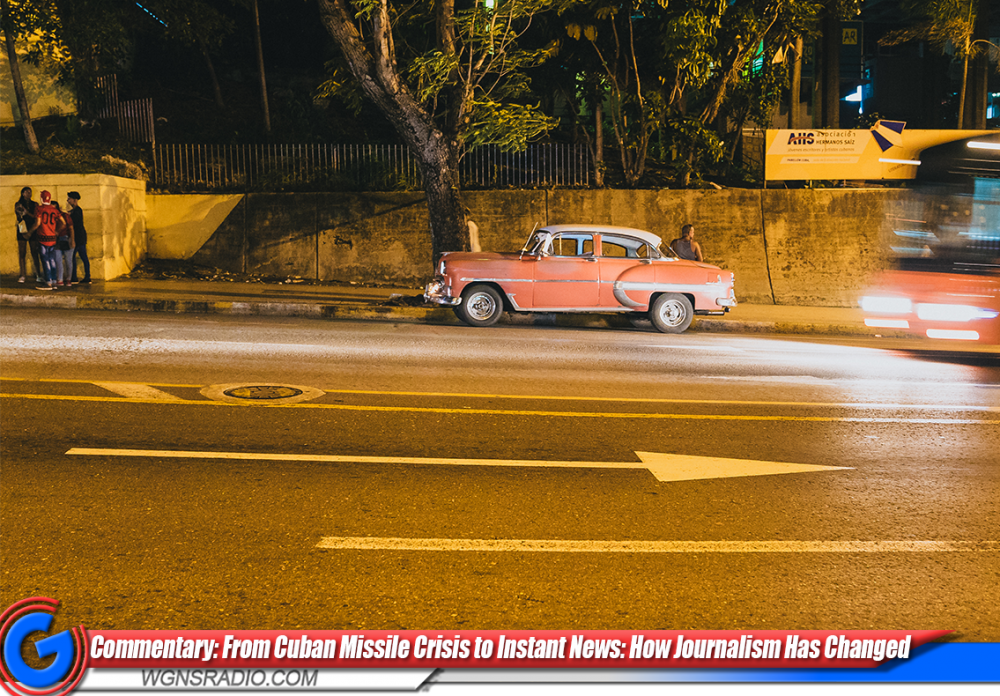Commentary: MTSU Journalism Professor Larry Burriss compared news coverage during the 1962 Cuban Missile Crisis with today’s instant reporting. He highlighted how challenging it is for modern audiences, accustomed to constant updates, to imagine living through a global crisis with little information. During the crisis, President Kennedy’s quarantine of Cuba was announced via live television, but there was no 24-hour news cycle or live battlefield reports. Dr. Burriss said... (Scroll down to hear the complete 2.5 minute commentary).
The lack of immediate information left citizens in fear, relying on limited media coverage from just three networks. Burriss noted that even journalists of the time accepted government narratives more readily, with secret diplomacy — such as the role of ABC’s John Scali — taking place behind closed doors. In contrast, today's society enjoys real-time war coverage and constant analysis, but 62 years ago, people faced the looming threat of nuclear war largely in the dark. With more, here is Dr. Larry Burriss... Hear more commentaries by Dr. Larry Burriss by “Clicking Here.”
About Dr. Burriss - Larry Burriss, professor of journalism, teaches introductory and media law courses. At the graduate level he teaches quantitative research methods and media law. He holds degrees from The Ohio State University (B.A. in broadcast journalism, M.A. in journalism), the University of Oklahoma (M.A. in human relations), Ohio University (Ph.D. in journalism) and Concord Law School (J.D.). He has worked in print and broadcast news and public relations, and has published extensively in both academic and popular publications. He has won first place in the Tennessee Associated Press Radio Contest nine times. Dr. Burriss' publications and presentations include studies of presidential press conferences, NASA photography, radio news, legal issues related to adolescent use of social networking sites, legal research, and Middle Earth.
Dr. Burriss has served as director of the School of Journalism, dean of the College of Mass Communication and president of the MTSU Faculty Senate. He was appointed by Gov. Phil Bredesen to serve on the Tennessee Board of Regents. He was a lieutenant colonel in the U.S. Air Force and served on active duty in Mali, Somalia, Bosnia, Central America, Europe and the Pentagon.


